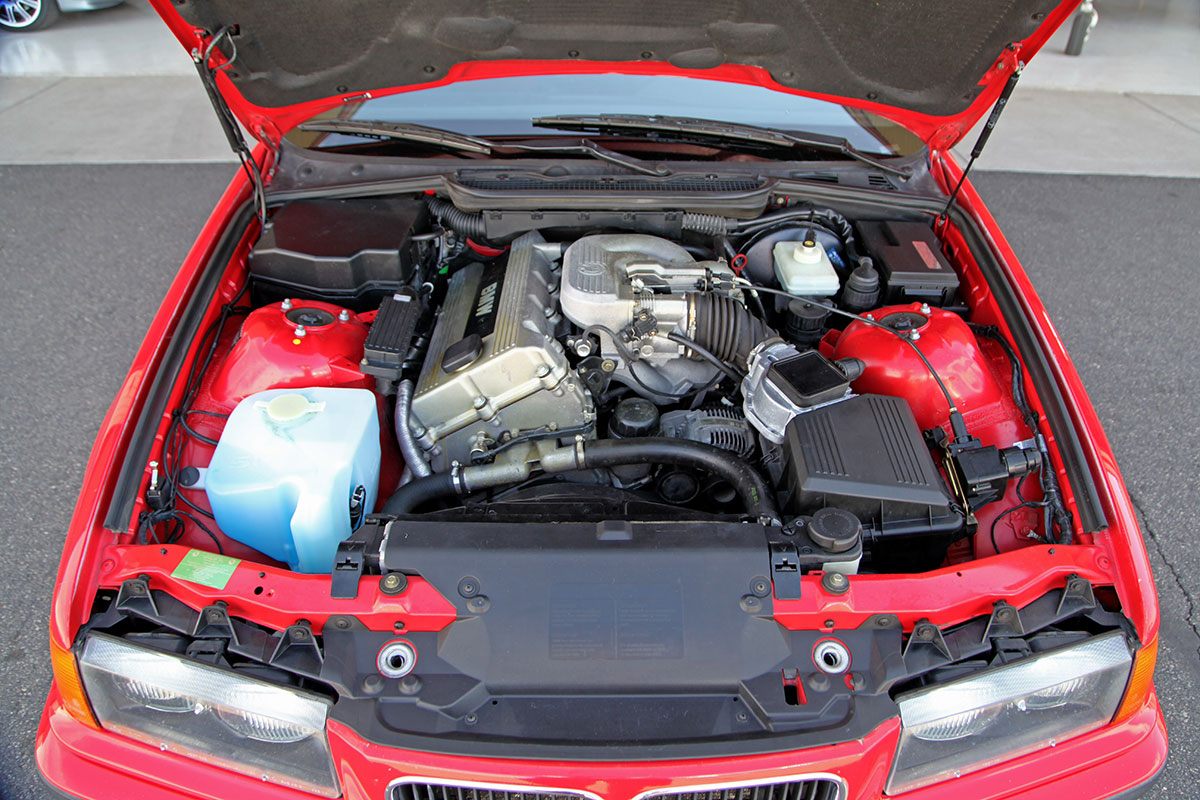BMW 318ti: A Timeless Compact with Ageless Charm
BMW 318ti: A Timeless Compact with Ageless Charm
Blog Article
Important Factors To Consider for Selecting the most effective Engine for Your Requirements
In the realm of selecting the perfect engine to satisfy your needs, a number of crucial factors need careful consideration to ensure ideal efficiency and efficiency. From the nuanced equilibrium between power and efficiency to the often-overlooked aspects of upkeep and service needs, each aspect plays a crucial role in establishing the most appropriate engine for your specific requirements. As the intricacy of engine technologies proceeds to evolve, discerning one of the most fitting choice necessitates a deep understanding of the interaction between numerous factors to consider. By checking out the detailed internet of elements that underpin this decision-making procedure, a clearer path arises in the direction of choosing an engine that not just meets but exceeds your expectations.
Power and Efficiency
When reviewing engines for optimum efficiency, it is crucial to prioritize both power result and performance. Power result gauges the capacity of an engine to create power, which straight affects its performance. A high power outcome is vital for demanding tasks such as high-speed requirements or heavy-duty applications. It ensures that the engine can handle the work effectively and successfully. Power alone is not sufficient; efficiency plays a substantial duty in establishing the total efficiency of an engine. Effectiveness refers to how well the engine converts gas right into useful power. A more reliable engine will certainly provide much better mileage, reduced discharges, and decreased operating expense. Striking the appropriate balance in between power result and effectiveness is key to picking an engine that satisfies your specific demands. When making this decision, it is essential to think about elements such as the planned use of the engine, ecological effect, and lasting expense implications. By very carefully assessing both power and efficiency, you can pick an engine that provides optimum performance and satisfies your needs efficiently.
Fuel Effectiveness and Economic Situation
Gas performance refers to the engine's capacity to transform gas right into power with marginal waste, straight influencing operating expenses and ecological sustainability. Engines with greater gas performance not just lower gas costs but also lower carbon exhausts, contributing to a greener operation.

Compatibility and Application
Considering the fuel performance and economy of an engine, the next crucial aspect to address is its compatibility and application within details operational contexts. Compatibility refers to how well the engine integrates with the general system or tools it powers.
Furthermore, the application of the engine is just as vital. Different engines are created for details purposes, whether it be industrial machinery, aquatic vessels, autos, or power generators. Understanding the designated application enables for click for info the option of an engine that can supply the required power output, torque, and operational qualities. As an example, a high-revving engine made for performance vehicles would not appropriate for durable building and construction tools that requires high torque at low speeds.
Maintenance and Service Demands
Upkeep and solution requirements play a critical role in guaranteeing the longevity and optimum performance of an engine. Routine upkeep is necessary to avoid failures, extend the lifespan of the engine, and preserve its effectiveness. When picking an engine, it is necessary to consider the maker's advised upkeep schedule and the availability of service facilities or certified professionals.
Factors such as the frequency of oil adjustments, filter replacements, and general inspections can considerably influence the engine's efficiency. Some engines may need more regular maintenance based upon their layout and usage, while others may have longer intervals in between maintenance checks. It is crucial to abide by these solution needs to stay clear of costly repair services and unanticipated downtime.
Cost and Budget Factors To Consider
Budget plan constraints often play a substantial function in the decision-making procedure when choosing an engine for a particular application. When considering the expense and budget effects of choosing an engine, it is vital to examine not just the preliminary acquisition cost yet likewise the lasting expenses connected with maintenance, gas usage, and possible upgrades or repair work. It is crucial to strike a balance in between the in advance price of the engine and its overall lifecycle prices to guarantee that the picked engine remains economically sustainable throughout its functional lifespan.
Variables such as fuel reliability, sturdiness, and effectiveness can straight influence the complete cost of ownership of an engine. While a more costly engine may have greater ahead of time prices, it can possibly result in lower maintenance and gas expenses over time, thus providing much better value over time. Furthermore, thinking about the schedule and price of extra components, in addition to the simplicity of upkeep and solution, can assist stop unforeseen monetary pressure in the future. By very carefully examining these expense and budget plan factors to consider, you can make an informed decision that lines up with your operational needs and economic restrictions.
Final Thought

Gas effectiveness refers to the engine's capacity to convert gas right into power with minimal waste, directly influencing operating prices and environmental sustainability.Aspects affecting fuel effectiveness consist of engine layout, combustion effectiveness, and general performance optimization. In addition, selecting the suitable gas kind and quality as recommended by the engine producer can additionally boost performance and prolong engine lifespan.
Engines with great use attributes and conveniently offered components can reduce maintenance costs and reduce the time the engine is out of operation - bmw 318ti. It is vital to strike an equilibrium in between the ahead of time cost of the engine and its overall lifecycle costs to guarantee that the chosen engine stays economically sustainable throughout its operational life expectancy
Report this page